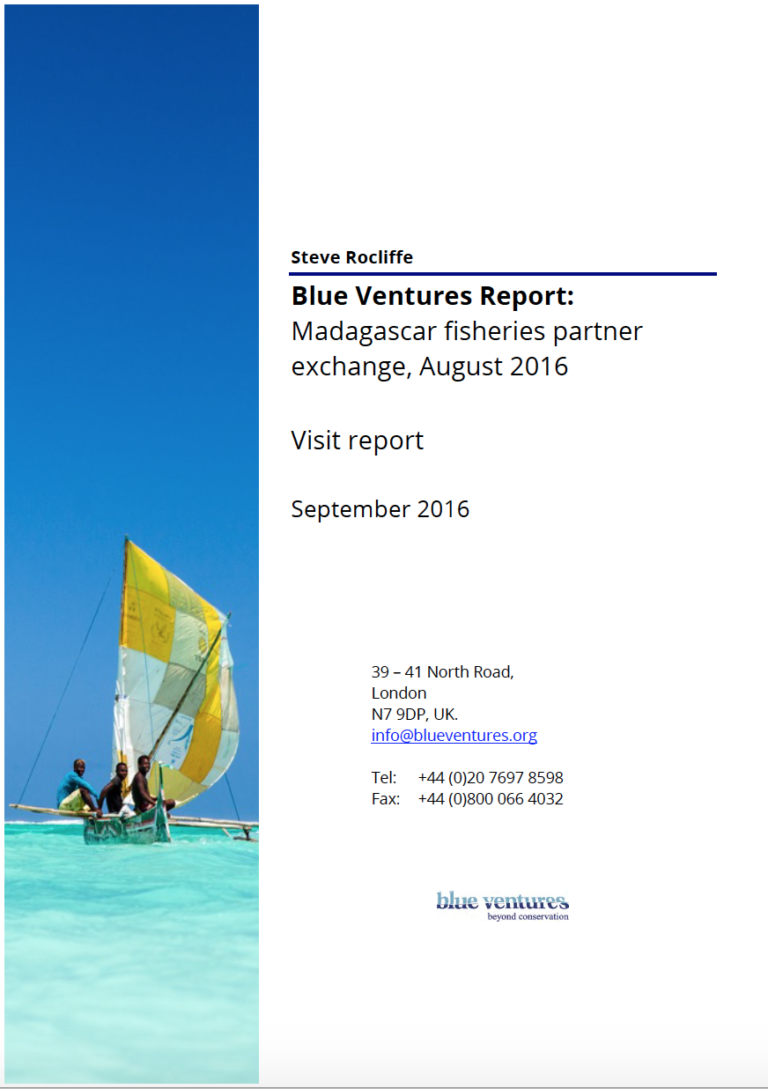Summary
A decade ago, in a remote corner of southwest Madagascar, Blue Ventures supported the village of Andavadoaka to temporarily close a small reef to octopus fishing to see if this might boost declining catches. When the closure was lifted a few short months later, fishers caught far larger octopus — and far more of them. So impressive were the results, that before long, nearby villages were establishing closures of their own, and starting to think about more ambitious marine conservation efforts. Within three years, Andavadoaka had joined forces with two-dozen neighbours to create the Velondriake locally managed marine area (LMMA) in which reserves permanently off limits to all fishing were established and practices such as poison fishing were banned.
This use of short-term closures as a “foot in the door” for conservation has since grown along many hundreds of kilometres of Madagascar’s coastline, reaching around 150,000 people and inspiring a grassroots marine management movement that has seen 65 LMMAs established to date, covering 11% of the island’s seabed.
Buoyed by the success of this approach, Blue Ventures has begun to strive for impact at scale, embarking on a new journey to reach three million people across the world’s tropical coastal regions, by supporting partners to implement approaches that have worked for BV, including octopus closures.
In August 2016, more than a decade on from the first closure, we took our first major step on this new journey, inviting new partners from Zanzibar, Mozambique, Mayotte, Kenya and India to Madagascar to learn more about our work, to see the closures and LMMAs for themselves, and to use these experiences to spark new octopus closures and LMMA movements back home.
Over the course of 10 days from 15-25 August 2016, representatives from five new partner organisations visited key field sites in Madagascar, accompanied by several octopus fishers and a documentary filmmaker. The partners were supported by BV field staff in Madagascar, as well as by technical specialists from the UK, Belize, Mozambique, and Indonesia.
The visit coincided with the reopening of several octopus reserves, allowing participants to witness the increased catches that resulted, as well trying their hands at spearing octopus. During their time in the field, participants also snorkelled at one of the permanent reserves, visited BV’s sea cucumber and seaweed farms, and attended a full-day training workshop, before heading for home, armed with new knowledge and experiences to help scale and sustain closures in new places, and committed to a nascent octopus closure practitioner network to share best practice and accelerate progress.

















